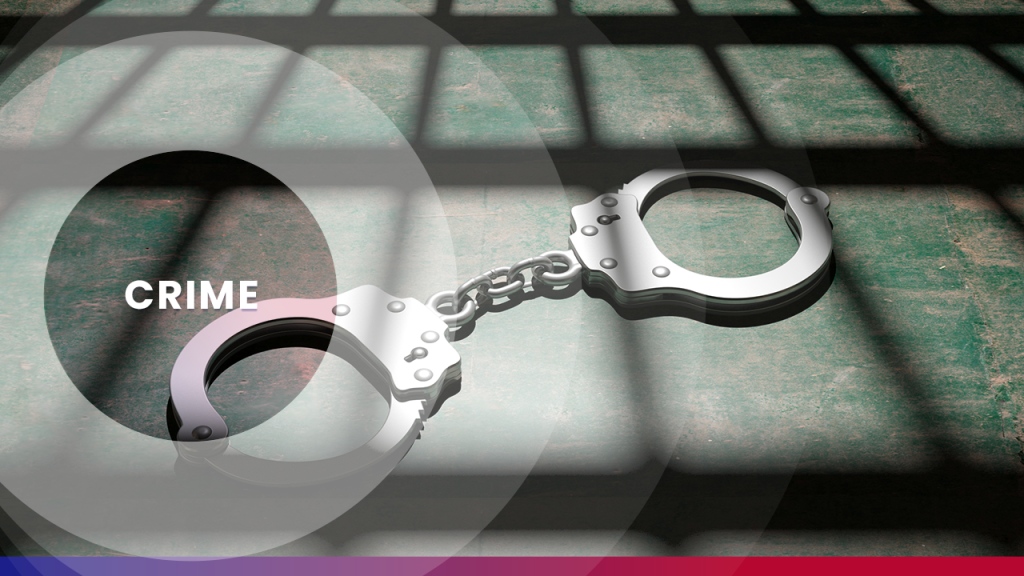THE main suspect in yesterday’s deadly attack on a police team in St Catherine was the type of criminal that law enforcers are now facing more and more — heavily armed and flush with money to hire foot soldiers and rent high-value houses in what would normally be considered safe communities, according to National Security Minister Dr Horace Chang.
“This is the character of some of the criminal leaders we are facing today. They have resources; they have money, they buy guns, and they, in fact, will put themselves in unusual situations. They rent houses of the highest value; it is a pattern of criminality that is causing challenges. The police have clearly taken steps to have a better understanding and will, in fact, I am confident, overcome the challenges,” Chang told journalists outside the premises in Horizon Park, St Catherine, where four cops were shot — two fatally — by three men in an early morning operation.
Just over 11 hours later, the main suspect — deportee Damion Hamilton — was cut down by police at a house in Cooreville Gardens, St Andrew, approximately 12 miles away from the scene of the early morning firefight that left Detective Corporal Dane Biggs and Constable Decardo Hylton dead, and Superintendent Leon Clunis and another policeman, whose name has not been revealed, still being treated in hospital.
Late yesterday evening Police Commissioner Major General Antony Anderson extended condolences to the families of the slain policemen and said the constabulary would do all it could to support them.
“This could be any given day of our policing, but it happened to be today,” General Anderson said at a virtual news conference hosted by Prime Minister Andrew Holness at Jamaica House to give an update on Jamaica’s COVID-19 response.
“I have to thank all the people who expressed their support, and [who] also gave information to us that we could follow up as quickly as we did. And it really speaks to the benefit of what public support can do for us in policing. Once we’re getting that support it allows us to respond quicker. It allows us to make much better use of the resources we have,” Anderson said.
On a day described by security personnel and government officials alike as not good, an 11-member team led by Superintendent Clunis went to Horizon Park in search of Hamilton and came under heavy attack.
According to sources, the police had received information that Hamilton, who supposedly has a military background and was deported to the island two years ago after being charged with gun-related crimes, was at the house.
“They called, there was no response,” one source told the Jamaica Observer at the scene.
The police team proceeded to search the house and upon reaching the last room in the building they came under fire.
Clunis, the Observer later learnt, was not wearing a protective vest and was shot eight times. Doctors battled for several hours to save his life, only managing to stabilise him late afternoon. The other injured cop, the Observer was told, is stable.
“I don’t think they were fully aware of the level of firepower they were up against, but they knew they were up against a criminal, and a criminal who is pretty smart, with an established residence in this community,” Chang said shortly after arriving at the scene.
“They tend to have money, and what they do is hire the young men and young women in the communities, who are not engaged in productive activities, as ‘shottas’, and they find refuge in communities like these. So you might not have expected this level of firepower here,” Dr Chang said.
“All the officers involved are some very highly professional, capable individuals, and my first thought after absorbing the tragedy of the incident was that, in fact, it demonstrates the new approach of the police, which is intelligence-driven, because this is a community where anyone driving by would not expect to come into gang activity. So the intelligence unit in Spanish Town, in doing their job, they knew there was someone there; they [just] didn’t expect that kind of reaction. It is not the kind of thing you anticipate, even with the kind of crime background that we have in Jamaica,” he pointed out.
“The men were armed with high-powered weapons. An M16 at that range can tear through pretty much anything that we have in normal circumstances. We would have to have had the men prepared for a high-powered, high-velocity combat situation. They are in a residential community, they knew they could face problems, but not at that level,” he added.
Dr Chang said the police team involved in the operation had “responded almost ideally in every situation… but it is difficult to anticipate this kind of reaction. An M16 with an extended magazine of 60 rounds within six feet is not something you can think through”.
After the gun battle, investigators retrieved an M16 rifle from the house.
Hamilton was later tracked to a house in Cooreville Gardens where, after another gun battle, he was killed. Two police officers were injured in that incident.
Referring to the early morning incident, Dr Chang said: “The tragedy should remind the country of the level of evil and criminality that the police face on a daily basis. Unfortunately, many times some of the commentary would suggest almost the other way, [that] the police are the bad guys on the scene, but this is what I have come to understand as minister of national security, that this [is the] situation the police face every day”.
Opposition Leader Dr Peter Phillips, who visited the scene, paid respect to the policemen “who gave their lives as a supreme sacrifice to help Jamaica”. He also condemned the action of the criminals.
“This attack is a clear attack on the country as a whole, and demonstrates that violence is rampant, respect for the law is disappearing, and that there is a willingness to kill that has spread in the criminal community and which needs to be contained,” Phillips said.
“It is clear that the crime problem is becoming more and more lethal, deadly, and difficult for the country, and it suggests to me that we need to go beyond the tactics and the strategies of the moment, which really seem to just focus on the hard policing [and] states of emergency,” he argued.
He said the presence, at the scene, of individuals from across the political divide and other spheres sent a very clear message: “…A country united against this violence. A country where the good people of the country want to be led to overcome the problem. We must take this as an opportunity to wheel and come again and find a better way forward.”
As police and soldiers swarmed the streets of Horizon Park, Scene of Crime personnel from the constabulary, as well as Independent Commission of Investigations representatives painstakingly combed the area for clues.
Several cried openly. Some stood in silence, lost in thought.
One senior policeman, whose nephew was one of the two cops killed, cut a stark figure, not verbalising much, but his eyes, visible above his face mask, spoke volumes.
“It is bad,” he told this reporter when asked about his nephew’s tragic end, admitting in a soft voice that he had never expected that his nephew would die in that fashion.
He described his family as being “very close” and said the 26-year-old cop, who was the only child for his mother and the first for his father, had been in the constabulary for only five years.
He told the Observer that the young policeman’s parents were not handling the news of his death well.















